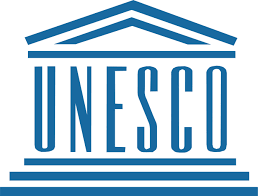DiploFoundation will participate at UNESCO’s CONNECTing the Dots conference, which is taking place on 3-4 March in Paris. The event’s aim is to discuss the first draft of the UNESCO Internet Study, Keystones to Foster Inclusive Knowledge Societies, on Internet-related issues.
[Update] Read the conference’s outcome document, adopted during the final plenary session
[Update] Report from Day 2: Build a legacy for future generations, connect bridges – some suggestions for future action made during the Options for Future Action session. Includes suggestions made by GIP head Dr Jovan Kurbalija
[Update] Report from Day 1: Privacy issues discussed during break-out session, in which the panellists discussed privacy aspects in relation to legal frameworks, education, and corporate responsibility.
[Update] Report from Day 1: High-level government perspectives shared during CONNECTing the Dots High-Level Governmental Dialogue
[Update] Read: Connecting the Dots in Digital Politics – reflections by Dr Jovan Kurbalija on finding solutions to current challenges in digital politics by connecting the dots. Article first published in the Huffington Post (2 March)
DiploFoundation director Dr Jovan Kurbalija will speak during the session on Options for Future Action 2, on 4 March at 11 a.m. CET.
This major global event is expected to attract participants from governments, civil society, academia, private sector, the technical community, inter-governmental and international organisations as well as noted thought leaders, innovators and pioneers in the Internet governance space.
The conference is part of UNESCO’s response in support of the decision taken by its 195 Member States. Through Resolution 52, adopted in 2013 at the 37th session of UNESCO’s General Conference, Member States called for a comprehensive and consultative multi-stakeholder study on Internet-related issues within UNESCO’s fields of competence.
The study will examine current and emerging inter-related trends, challenges and opportunities around access to information and knowledge, freedom of expression, privacy, and ethical dimensions of the information society. The conference will provide a multistakeholder platform to explore the findings of the study and to develop possible responses and options that could orient UNESCO’s future actions.
The broad reflections and recommendations that will emerge from the conference will also inform the work of the 196th session of UNESCO’s Executive Board during its April 2015 meetings. The final outcomes of the entire study process will be presented to the 38th session of UNESCO’s General Conference in November 2015.
This UNESCO study, its findings, recommendations and the partnerships mobilised represent an important contribution to the World Summit on the Information Society (WSIS) +10 Review process and the post-2015 international development agenda.
More information about the conference is available on the conference webpage.





